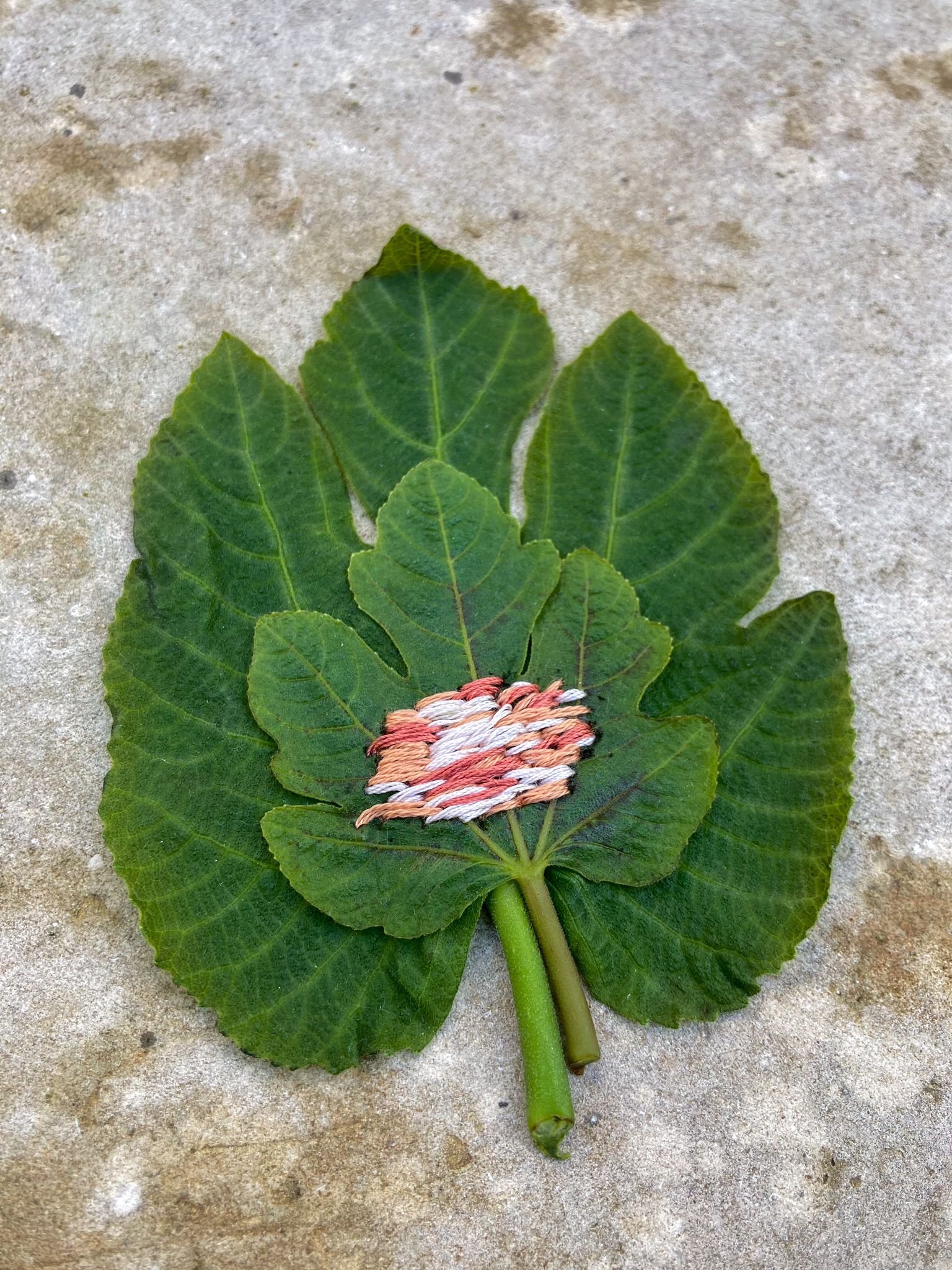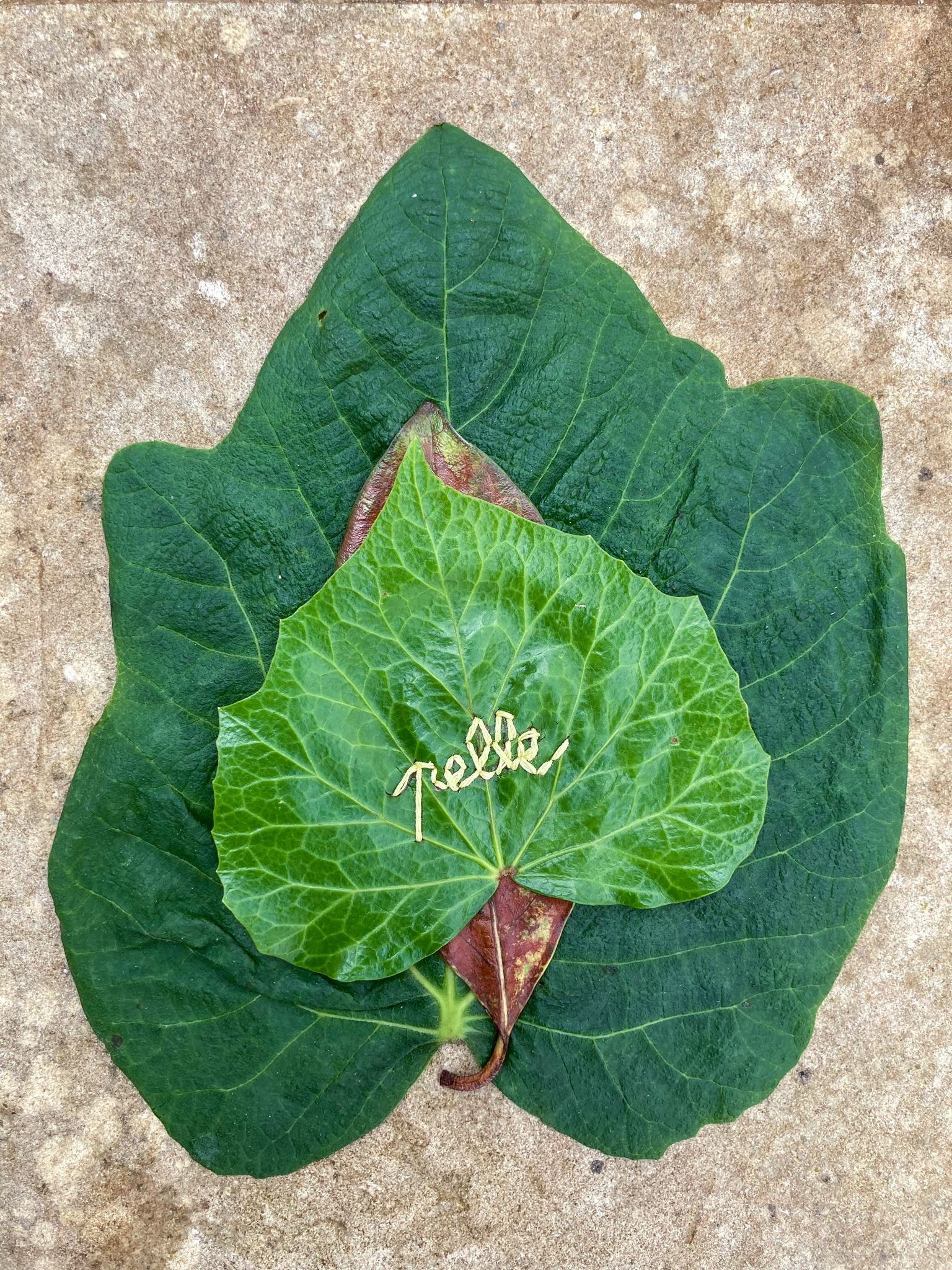SABRINA LAIOLO
Resident April 2023
Sabrina Laiolo is a French artist with Italian origins who works with textile art and nature. Passionate about fabrics and trained as a fashion designer, she has developed a curiosity for embroidery and crochet. Her work revolves around time, cycles, and the lines of life that she transcribes through a colorful and straightforward aesthetic, mixing textile fibers, painting, and plants. A part of her art concerns trees and leaves, and it's not a coincidence. As a child, she used to spend her weekends in the forest with her father, who was the owner of a sawmill, a family business created in 1952 by her Italian immigrant grandparents.
In April 2023, the Italian-French artist Sabrina Laiolo, a fiber and textile artist based in France, lived in contact with the city and the Salento.
The artist started from the study of the book "Il crepuscolo del corpo": immagini dell'invecchiamento femminile, by Caroline Schuster Cordone; an essay that addresses the complex and highly topical theme of representations of aging in women and focuses on the images of elderly women in Italy from the 15th to the 17th century. The keyword of the study is <Sénescence>, aging, in particular the relationship of the elderly woman with society and family, the issue of the aging body, and the transgressive attitude of the elderly woman towards sexuality and maternity.
The reflection on female senescence also affects the aesthetic discourse that, at the dawn of the modern era, focuses on the young female body. A place of projection of physical and moral perfection, an object of desire, the figure of the beautiful and young woman combines the attributes of the beautiful and the good. On the contrary, ugliness is embodied by a woman, but this time by the "old" one, who often symbolizes the moral decay attributed to all decrepitude.
As they age, women not only lose their femininity but also, it is believed, their humanity. From here, an intimate and anthropological reflection carried out during the April residency and expressed through multiple media, all of which are linked through Laiolo's original element in her research, which is thread and fabric, as the main portal towards the issue of the body.
"My reflection on this theme focuses on the body and its skin, on the lines of life that manifest themselves in signs, wrinkles, and the way they form. Signs, wrinkles, indentations, changes. Through my textile works and my textile and plant research, I want to show the beauty of these changes. Senescence is also a reflection of life, because aging is being alive and not just going towards death."
In the book, Laiolo reflects, there is this Italian quote: "God, don't let me live to old age." This quote emphasizes the experience of time passing and the difficulty of individually facing one's own aging. In my work, I explore the aesthetics behind every vein and veinlet of the leaf, every fold and crease of a fabric, as well as every wrinkle and change in the skin of the female body. Accepting the passage of time. It's a movement of life.
If I focus on the woman's body, there is a part of identification with my own body. The restriction that is instilled in us from a young age not to age, as if it were a prohibition. As if our beauty should be frozen in time. I can't think of anything better than Simone de Beauvoir's quote to reflect my thoughts: "The woman, like the man, is her body: but her body is something other than her." (Simone de Beauvoir, The Second Sex)





